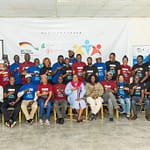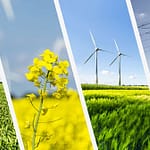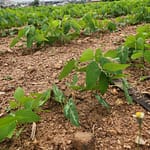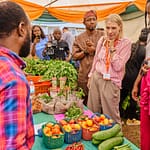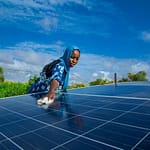Nairobi, Kenya – A new report launched by the SDGs Kenya Forum, in collaboration with Sight Savers and Open Institute, has highlighted that Kenya is facing significant challenges in meeting the Sustainable Development Goals (SDGs) by 2030. The 2024 Civil Society Voluntary National Reviews (VNR) Report reveals a mixed picture of progress and obstacles in the country’s journey towards a more sustainable future.
Since the adoption of Agenda 2030, VNRs have been a vital mechanism for evaluating progress and identifying challenges in implementing SDGs. These reviews provide a snapshot of a country’s achievements and hurdles in achieving the 17 interconnected goals set by the United Nations. The primary aim is to share experiences, foster peer-to-peer learning, identify gaps and best practices, and mobilise partnerships to accelerate SDG attainment.

Under the theme “Accelerated Action and Transformative Pathways: Realising the Decade of Action and Delivery for Sustainable Development,” this year’s report captures the collaborative efforts of civil society in implementing the SDGs. The launch highlighted both the successes and challenges in this journey, with some goals showing commendable progress while others lag behind.
Festus Wangwe, Senior Economist at the Ministry of State for Planning, National Development, and Vision 2030, opened the event with a keynote speech. “The 2030 agenda with decisive action aims at making the future more sustainable. It’s one way of building a foundation for significant and sustainable change,” Wangwe emphasised.
He added, “Government and organisations can contribute to the change by reporting, tracking, and disseminating results for appropriate action. More efforts need to be put on implementation. What is the role of the government? Are the marginalised included in the initiative?”
Wangwe expressed concern over the persistent challenges that might hinder the achievement of the SDGs by 2030. “There exists a doubt for the achievement of the SDGs by the year 2030. This is with the existence of poverty, hunger, suicide deaths, gender violence, slums, and informal settlements. Gender equality remains weak,” he noted. He stressed the need for improved data collection and investment to provide a comprehensive report on SDG progress.
Samwel Kimote during his speech highlighted some troubling statistics, saying, “from the report, Poverty stands at 39.8%, an increase from 36.1%. There still exists poor performance in good health. The agenda requires a strong partnership. Institutions ought to have synergy for efforts to be complemented.”
The launch ended with a panel session that scrutinised the report, concluding that the process remains off track and unlikely to achieve the SDGs without significant changes. The panel emphasised the need to invest in data to comprehensively report on the SDGs, suggesting that by 2030, all 47 counties should undertake their reviews.
Last year, SDGs Kenya held a forum emphasising leveraging parliamentary voices to rally support for SDG projects at both individual and county levels. By harnessing the influence of parliamentarians, policymakers can facilitate SDG initiatives’ implementation, leading to a more significant impact.
“Now more than ever, the world needs all hands on deck to recover and accelerate efforts to achieve the sustainable development goals,” said Florence Syevuo, the Executive Director of SDGs Kenya Forum noted during the last year forum.
Kenya has presented two VNRs in 2017 and 2020 and is set to present its third review this July during the High-Level Political Forum (HLPF) in New York, USA. Non-state actors in Kenya have consistently compiled and submitted progress reports since 2017, which are annexed to the official national reports. The 2024 VNR report reflects the views and contributions of Kenya’s civil society
The 2024 Civil Society Voluntary National Reviews Report launch is a critical step in Kenya’s journey towards achieving the SDGs. With continued collaboration, investment in data, and active participation from all sectors of society, Kenya can make significant strides towards a more inclusive, equitable, and sustainable future.
